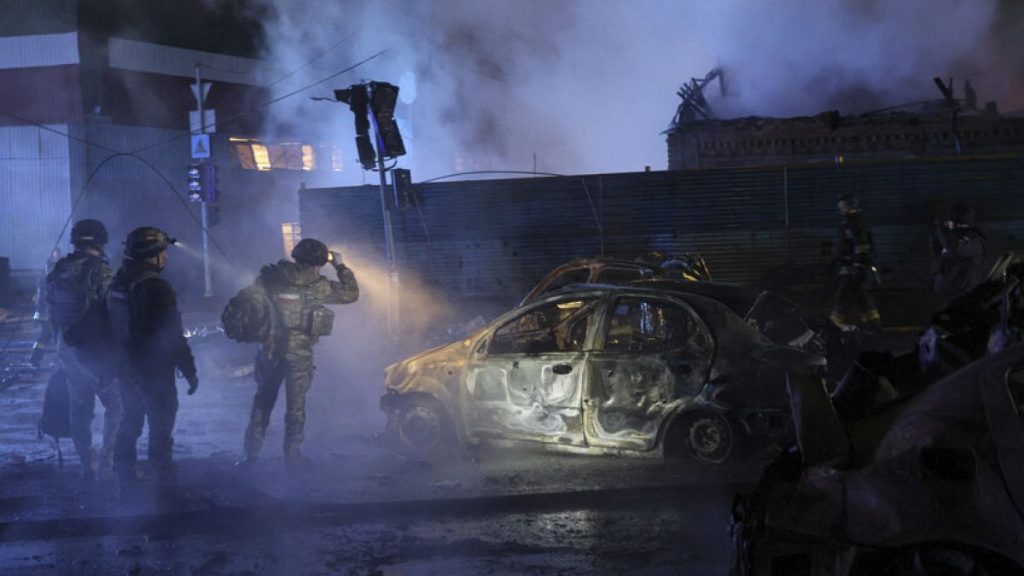The Shadow of War: Renewed Attacks and Diplomatic Efforts in Ukraine
The ongoing conflict in Ukraine continues to cast a long shadow over the region, marked by recent devastating attacks and a flurry of diplomatic activity. A Russian shelling of Zaporizhzhia, a southeastern Ukrainian city, tragically claimed the lives of at least nine civilians and wounded close to twenty more. The attack, which occurred on Saint Nicholas Day, a significant holiday in Ukraine, targeted a service station and caused widespread damage to nearby homes and businesses. This assault, condemned by Zaporizhzhia Oblast Governor Ivan Fedorov as a blatant act of terrorism by Russia, underscores the indiscriminate nature of the violence directed towards civilian populations. A separate attack on Kryvyi Rih, a neighboring city, further compounded the suffering, resulting in two fatalities and numerous injuries. These attacks serve as grim reminders of the immense human cost of the war and the urgent need for a peaceful resolution.
The attacks in Zaporizhzhia and Kryvyi Rih not only highlight the ongoing human tragedy but also underscore the broader political implications of the conflict. Governor Fedorov’s condemnation of Russia as a terrorist state reflects the growing international concern over Russia’s disregard for civilian lives and international humanitarian law. The targeting of civilian infrastructure and the timing of the attacks on a significant holiday suggest a deliberate strategy to inflict maximum harm and demoralize the Ukrainian population. These actions further complicate the prospects for a negotiated settlement and raise questions about Russia’s ultimate objectives in the conflict.
Amidst the escalating violence, a significant diplomatic event unfolded with the reopening of the Notre-Dame Cathedral in Paris. Ukrainian President Volodymyr Zelenskyy attended the event at the invitation of French President Emmanuel Macron, alongside other prominent figures, including US First Lady Jill Biden and US President-elect Donald Trump. The presence of these leaders at such a symbolic event provides a backdrop for crucial discussions on the ongoing war in Ukraine and the potential for future diplomatic initiatives.
The convergence of these leaders, particularly Zelenskyy and Trump, represents a pivotal moment in the evolving dynamics of the conflict. Trump, who has been critical of US aid to Ukraine, has repeatedly claimed his ability to swiftly bring an end to the war. His attendance at the Notre-Dame reopening and potential meeting with Zelenskyy mark the first direct interaction between the two leaders since Trump’s election victory. This encounter holds the potential to reshape US policy towards the conflict and influence the trajectory of peace negotiations.
The backdrop of Trump’s previous criticism of US support for Ukraine adds a layer of complexity to this meeting. His pronouncements on potentially ending the war within 24 hours of taking office and his critique of Zelenskyy’s handling of the conflict raise questions about his approach to the negotiations. The meeting between Zelenskyy and Trump therefore becomes a crucial test of whether Trump’s campaign rhetoric translates into concrete policy decisions and whether a common ground can be found for future cooperation.
Furthermore, German Chancellor Olaf Scholz’s recent pronouncements on his conversation with Trump regarding Ukraine signal a potential shift in the international approach to the conflict. Scholz’s emphasis on involving the Ukrainian people in any decision-making process reflects a growing recognition of Ukraine’s agency in determining its own future. His pledge of significant military aid to Ukraine underscores Germany’s commitment to supporting Ukraine’s defense capabilities. These developments, coupled with the potential meeting between Zelenskyy and Trump, suggest a renewed effort to find a diplomatic solution to the ongoing crisis. The coming weeks and months will be crucial in determining whether these diplomatic efforts can translate into tangible progress towards peace and an end to the suffering in Ukraine.














